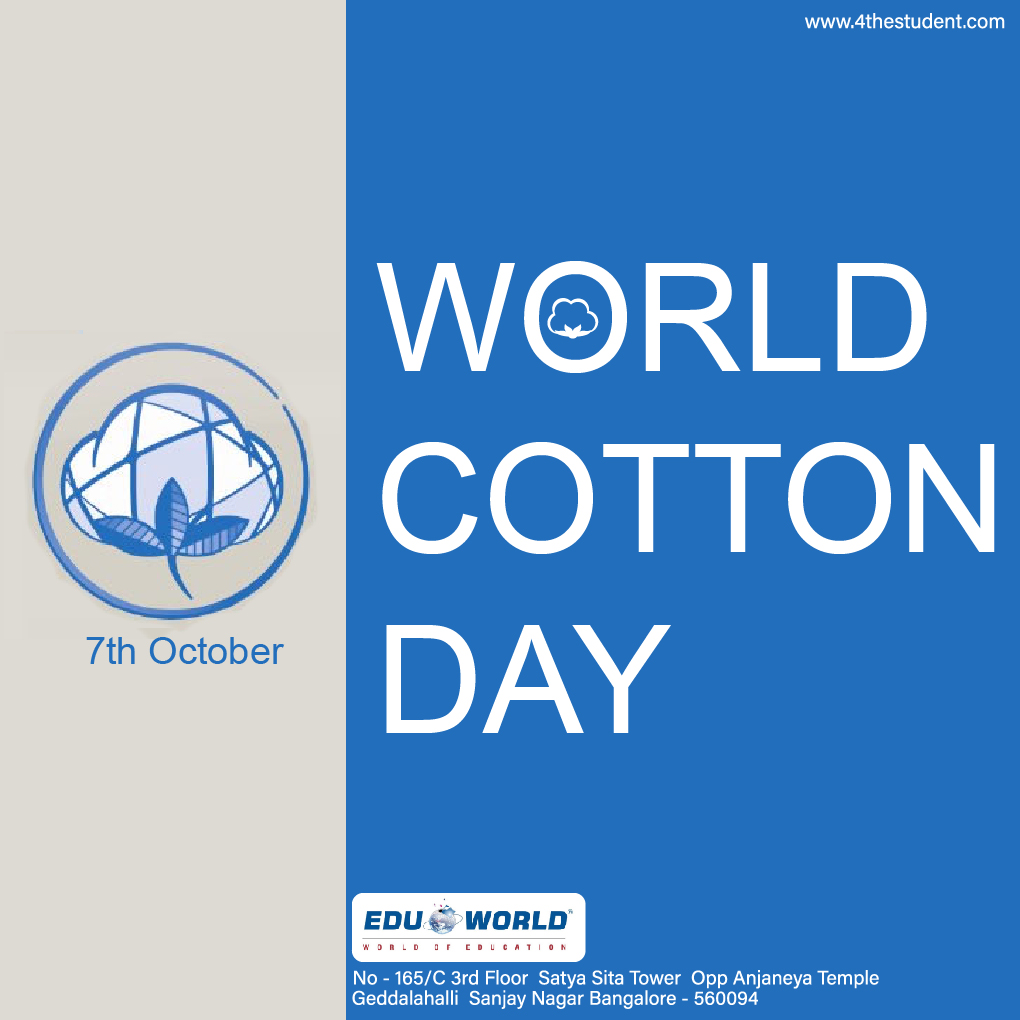2022 World Cotton Day: On October 7, we celebrate World Cotton Day. Because it is hypoallergenic, breathable, sturdy, and comfortable, cotton is one of the textiles that is utilized the most frequently in our wardrobes. Cotton has a significant global impact on millions of households and 28.67 million farms in addition to being a commodity. World Cotton Day highlights the importance of cotton to the stability of economies and the creation of jobs in LDCs. On this day, the world is invited to honour the most important natural fibre. From the beginning of the Industrial Revolution in Britain, when textiles became the country’s top export, cotton production greatly benefited. In modern times, developing and least developed nations produce the majority of cotton. India is currently the world’s top cotton producer. World Cotton Day was established by the Cotton Four nations of Benin, Burkina Faso, Chad, and Mali, and it was first observed on October 7, 2019.The event was put together with the help of the International Trade Centre (ITC), the World Trade Organization (WTO) Secretariat, the International Cotton Advisory Committee (I.C.A.C.), and the United Nations Conference on Trade and Development (UNCTAD) secretariats. It’s an opportunity to raise awareness of cotton-related initiatives and products. In the year 2021, the theme of World Cotton Day was “Cotton for Good. “This theme pays tribute to cotton’s long-term advantages, such as the creation of employment opportunities, the availability of natural fibers for clothing, and the production of consumables like cotton oil. In recognition of cotton’s significance as a major global commodity, World Cotton Day is observed. It aims to attract donors and beneficiaries, enhance cotton development aid, recognize cotton producers and traders, advance relevant technologies and research and development, and locate new private sector investors and partners. The significance of cotton to job creation and economic stability in least developed nations is brought to light on World Cotton Day. The celebration aims to emphasize the importance of decent work for all, sustained, inclusive, and sustainable economic growth, and full and productive employment. Although cotton accounts for 27% of the world’s textile production, it occupies only 2.1% of the world’s arable land.
From our clothing to our food, cotton is a part of our lives. However, this remarkable plant is more than just a source of animal feed, edible oil, and textile fibers. A truly global commodity is cotton. It is produced in 75 nations, many of which are among the least developed (LDCs), where cotton production and processing contribute significantly to economic stability and job creation. Cotton is prized by small farmers because it is a drought-resistant crop that has a ready market and provides a steady source of cash to cover important expenses like school tuition and medical care. Multiple processing steps make up the cotton value chain, which is long and leads to investment, job creation, and industrial upgrading. Technology advancements in the cotton production industry present opportunities to decrease waste and boost value added. Consumers around the world continue to demand cotton products at the end of the chain, creating lucrative trading opportunities.
The cotton industry relies heavily on international trade: By selling to people who live far away, they can boost their incomes, put more money into their businesses, hire more people, and help the economy as a whole grow. However, market access restrictions and subsidies that give competitors in other countries a leg up prevent many farmers, particularly those in LDCs, from securing higher prices through trade. These distortions frequently come along with difficulties on the supply side at home, which prevent them from taking advantage of opportunities in international markets.
The World Cotton Day is a crucial component of those initiatives. The WTO is pleased to support the Cotton-4 in this endeavour. Edu world hope that World Cotton Day will serve as a forum for the cotton trade and development communities to come together and motivate further actions that will benefit cotton farmers and the cotton trade worldwide




